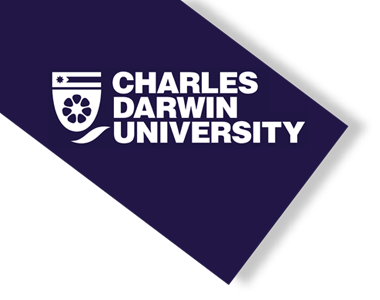Bachelor of Commerce/Bachelor of Laws
Charles Darwin University
About
This combined degree course provides students with the opportunity to major in a commerce program in conjunction with legal studies with a view to satisfying the academic requirements for admission into the legal profession and, depending on the specialization completed in the commerce program, possibly the accounting profession.
The Law course aims to provide knowledge of the legal system and legal principles, and to cultivate a capacity for legal research, analysis and communication.
The course also deals with theoretical perspectives on the law and encourages an appreciation of legal issues of special significance to the Northern Territory, including Aboriginal legal issues.
The Commerce course caters for individuals working in or intending to work in commerce or government in fields such as economics, accounting, management, human resources, or marketing.
It is of particular relevance to Australian or international students seeking membership of Australian professional bodies in these or related fields.
The program provides students with the career and professional skills needed in a rapidly changing business environment.
It allows for flexibility of study and prepares students for careers in a variety of business fields.
In addition, communication, presentation and problem-solving skills are emphasised.
After completing the equivalent of one year full time study, students will have the option of transferring from the Bachelor of Commerce/Bachelor of Laws into the Bachelor of Accounting/Bachelor of Laws, which directly addresses the requirements for membership of CPA Australia and the Institute of Chartered Accountants in Australia.
However, it is possible to satisfy the entry requirements of the two major Australian accounting professional bodies by the selection of appropriate units in the Bachelor of Commerce.
Graduates of this combined degree are awarded both the Bachelor of Commerce and the Bachelor of Laws.
Structure
Common(2 units) - 20
Common units totalling 20 credit points as detailed below:
CUC107
(new unit title in 2012)
Plus either:
CUC100
or
CUC106
Select
Common Units
Core(19 units) - 190
Compulsory Core units totalling 190 credit points as detailed below.
LWZ100A
LWZ100B
LWZ104
LWZ105
LWZ106
LWZ107
LWZ108
LWZ109
LWZ202
LWZ213
LWZ203
LWZ210
LWZ211
LWZ312
LWZ315
LWZ316
LWZ214
LWZ317
LWZ320
Specialist Electives(5 units) - 50
Specialist Elective units totalling 50 credit points from the following. Students must
choose to complete either LWS221
(replaced by LWA207 from 2019) or LWS320. Students are not precluded from
completing both units.
LWA207
LWS320
Please note that not all Specialist Elective units are offered every year.
Specialist Electives offered each year
(next offered 2020)
(last offered in 2012)
LWA210
(no longer offered)
LWA213
(next offered 2020)
(replaced by LWA321 2016) (next offered 2020)
(replaced by LWA111 from 2016) (next offered 2020)
(replaced by LWA221 from 2016)
(next offered 2020)
replaced by LWA317 from 2016)
Specialist Electives offered in alternate years
(no longer available)
(no longer avail from 2016)
LWA325
LWA328
(new unit title from 2015 - Competition and Consumer Law)
(new title from 2016) (next offered 2020)
(no longer avail from 2016)
(replaced by LWA110 from 2016)
(offered each year)
(no longer avail from 2016)
Commerce Core and Specialist Electives(9 units) - 90
Commerce Core and Specialist Electives totalling 90 credit points.
Compulsory Commerce Core units totalling 30 credit points as detailed below.
PMO201
STA101
Students intending to graduate with the BCOM before completing the BLAWS component of the combined degree course must also complete the Law Core Unit
to qualify for the BCOM award
Commerce Specialist Electives totalling 60 credit points selected from one of the seven Specialisations detailed below.
ACCOUNTING - All of:
CMA201
CMA202
CMA203
CMF201
(FIN201)
Plus any two of:
CMA301
CMA302
CMA303
CMA304
CMT301
ECONOMICS - All of:
(replaced by ECO207 from 2018)
(replaced by ECO204 from 2018)
(replaced by ECO305 from 2018)
Plus any one (1) of:
(previously ECO206 Money and Banking) (last offered in 2012)
(previously ECO301, ECO302, and ECO303 International Economics or Economic Development or Public Finance) (last offered in 2012)
HUMAN RESOURCE MANAGEMENT:
(last offered in 2012)
Plus any 5 from:
(replaced by HRM201 from 2018)
(replaced by MAN310 from 2018)
MAN212
(last offered in 2010, in 2011 a related topic will be offered to students in BUS320 Business Special Project/Contemporary Issues)
MAN302
MAN303
MANAGEMENT:
Plus any 5 from:
(replaced by HRM201 from 2018)
(replaced by MAN310 from 2018)
MAN212
(replaced by HRM303 from 2018)
MAN303
(last offered in 2010, in 2011 a related topic will be offered to students in BUS320 Business Special Project/Contemporary Issues)
MARKETING - All of:
MKT201
MKT202
(last offered in 2012)
MKT303
MKT304
ORGANISATIONAL INFORMATICS - All of:
or
HIT381
GENERAL BUSINESS:
Electives(5units) - 50
Units totalling 50 credit points selected from units offered by the University. Students may select units from any of the approved (specialisations/sequences) as electives if desired.
ENG1xx
ENG2xx
ENG3xx
ENG4xx
- 400
Total Credit Points
Entry requirements
Admission requirements are met by one of the following: Successful completion of the Northern Territory Certificate of Education and Training (or equivalent) and the awarding of an Australian Tertiary Admissions Rank (ATAR) of at least 60*. Successful completion of a national qualification at Certificate IV level or higher. Successful completion of at least 0.5 year of full-time study (or equivalent) of a higher education degree/diploma. Overseas secondary or tertiary qualifications considered equivalent to the above Australian qualifications. Attainment of a STAT Multiple Choice score of 135 (or a score of 145 if prior to May 2010). Successful completion of the Tertiary Enabling Program, the Preparation for Tertiary Success courses, or other recognised tertiary preparation course. Submission of an acceptable personal competencies statement and/or employment experience. * After any applicable adjustment factors have been applied.
Institution
